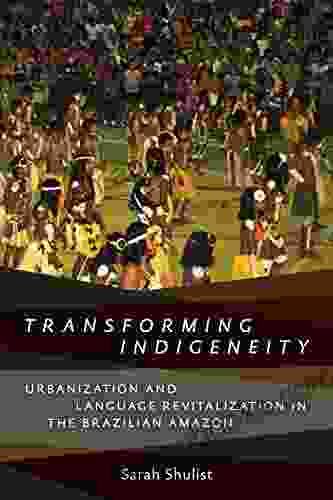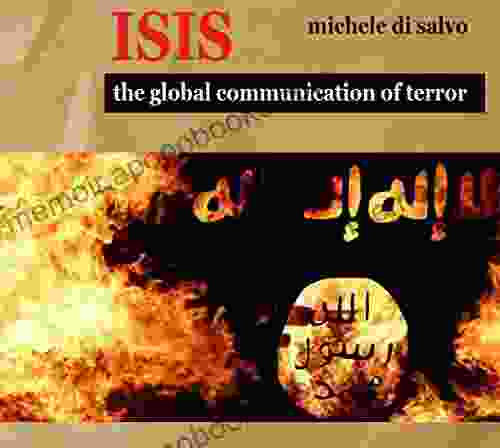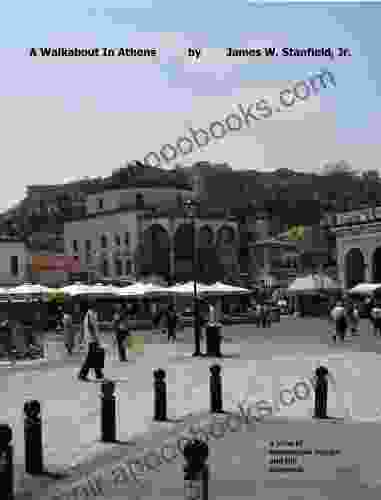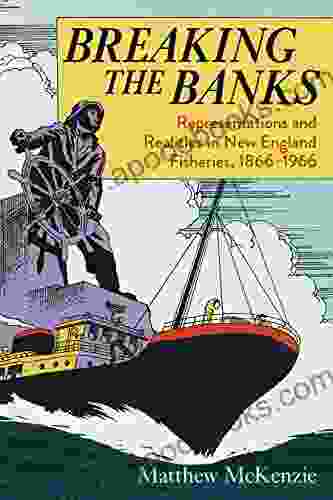Urbanization and Language Revitalization in the Brazilian Amazon: Unraveling a Complex Tapestry

The Brazilian Our Book Library, a vast and biodiverse expanse, is home to an astonishing array of indigenous communities and their unique languages. As the region undergoes rapid urbanization, a fascinating phenomenon is unfolding: the revitalization of indigenous languages within urban settings. This article delves into the intricate relationship between urbanization and language revitalization in the Brazilian Our Book Library, shedding light on the challenges and triumphs of preserving linguistic diversity in a changing world.
5 out of 5
| Language | : | English |
| File size | : | 5684 KB |
| Text-to-Speech | : | Enabled |
| Screen Reader | : | Supported |
| Enhanced typesetting | : | Enabled |
| Word Wise | : | Enabled |
| Print length | : | 264 pages |
The Impact of Urbanization on Indigenous Languages
Urbanization, marked by the migration of people from rural to urban areas, has a profound impact on indigenous languages. As indigenous communities relocate to urban centers in search of education, employment, and healthcare, their language practices are inevitably influenced by the dominant urban language, typically Portuguese.
Urbanization creates new linguistic spaces where indigenous languages may face pressures to assimilate or adapt. The use of indigenous languages in public domains, such as schools, workplaces, and media outlets, is often limited, leading to a decline in intergenerational language transmission. Additionally, the younger generation may adopt Portuguese as their primary language of communication, resulting in a shift away from their ancestral tongues.
Language Revitalization in Urban Settings
Despite the challenges posed by urbanization, indigenous communities in the Brazilian Our Book Library have demonstrated remarkable resilience and determination in revitalizing their languages. Urban revitalization efforts are often driven by a deep sense of cultural identity and a desire to maintain ancestral connections.
Community-led initiatives play a crucial role in language revitalization. Indigenous organizations and cultural centers offer language classes, workshops, and immersion programs, fostering intergenerational language transmission and creating opportunities for younger generations to connect with their heritage. Furthermore, indigenous media outlets, such as radio stations and newspapers, provide platforms for promoting indigenous languages and transmitting traditional knowledge.
Socioeconomic Factors and Revitalization
Socioeconomic factors significantly influence the success of language revitalization efforts. Urban indigenous communities often face economic disparities and limited access to education and employment opportunities. These socioeconomic challenges can hinder efforts to prioritize language revitalization within communities.
However, some studies have shown that economic empowerment can facilitate language revitalization. When indigenous communities have access to education, healthcare, and economic stability, they are more likely to value and transmit their languages. Furthermore, urban revitalization efforts can create new economic opportunities for indigenous communities, such as through tourism and cultural industries.
Governmental Support and Collaboration
The Brazilian government, in recognition of the importance of indigenous languages, has implemented policies and initiatives to support their revitalization. The National Policy for Indigenous Education, for instance, mandates the use of indigenous languages in primary education in indigenous communities. Moreover, the Brazilian National Institute for Indigenous Peoples (FUNAI) provides funding for language documentation, research, and revitalization projects.
Collaboration between indigenous communities, government agencies, and academic institutions is essential for effective language revitalization. Joint efforts can ensure that revitalization projects are culturally appropriate, community-driven, and sustainable.
The relationship between urbanization and language revitalization in the Brazilian Our Book Library is complex and multifaceted. Urbanization presents challenges to indigenous languages, such as language shift and assimilation pressures. However, it also opens up new opportunities for language revitalization, through community-led initiatives, governmental support, and socioeconomic empowerment. By embracing the challenges and harnessing the opportunities, indigenous communities in the Brazilian Our Book Library are demonstrating the remarkable resilience and vitality of their languages and cultural heritage.
As we navigate the ever-changing urban landscape, it is imperative to recognize and support the linguistic diversity of indigenous communities. Language revitalization is not merely about preserving a linguistic heritage but also about safeguarding the cultural identity, knowledge systems, and worldview of indigenous peoples. By fostering intergenerational language transmission and creating inclusive linguistic spaces, we can ensure that the vibrant tapestry of indigenous languages continues to enrich the cultural fabric of the Brazilian Our Book Library and beyond.
5 out of 5
| Language | : | English |
| File size | : | 5684 KB |
| Text-to-Speech | : | Enabled |
| Screen Reader | : | Supported |
| Enhanced typesetting | : | Enabled |
| Word Wise | : | Enabled |
| Print length | : | 264 pages |
Do you want to contribute by writing guest posts on this blog?
Please contact us and send us a resume of previous articles that you have written.
 Book
Book Novel
Novel Page
Page Chapter
Chapter Text
Text Story
Story Genre
Genre Reader
Reader Library
Library Paperback
Paperback E-book
E-book Magazine
Magazine Newspaper
Newspaper Paragraph
Paragraph Sentence
Sentence Bookmark
Bookmark Shelf
Shelf Glossary
Glossary Bibliography
Bibliography Foreword
Foreword Preface
Preface Synopsis
Synopsis Annotation
Annotation Footnote
Footnote Manuscript
Manuscript Scroll
Scroll Codex
Codex Tome
Tome Bestseller
Bestseller Classics
Classics Library card
Library card Narrative
Narrative Biography
Biography Autobiography
Autobiography Memoir
Memoir Reference
Reference Encyclopedia
Encyclopedia Donald Revell
Donald Revell Gennarose Nethercott
Gennarose Nethercott Roddy Lumsden
Roddy Lumsden Tyree Daye
Tyree Daye Agustina Giraudy
Agustina Giraudy Engelbert Humperdinck
Engelbert Humperdinck Adolphus William Ward
Adolphus William Ward Larry Richards
Larry Richards Igor Krassi
Igor Krassi Maddie Please
Maddie Please Agatha Miller
Agatha Miller Michael C Dawson
Michael C Dawson Rachel Wilkerson Miller
Rachel Wilkerson Miller Arya Biju
Arya Biju Tanny Cie
Tanny Cie Troy Mccombs
Troy Mccombs Erin Osmon
Erin Osmon Barnett R Rubin
Barnett R Rubin Maggie Sokolik
Maggie Sokolik Matthew L Beyranevand
Matthew L Beyranevand
Light bulbAdvertise smarter! Our strategic ad space ensures maximum exposure. Reserve your spot today!
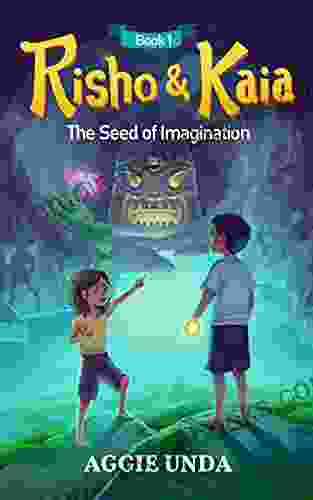
 Keith CoxEmbark on a Captivating Literary Journey with "The Seed of Imagination: Risho...
Keith CoxEmbark on a Captivating Literary Journey with "The Seed of Imagination: Risho... Ronald SimmonsFollow ·14.7k
Ronald SimmonsFollow ·14.7k Lee SimmonsFollow ·13.5k
Lee SimmonsFollow ·13.5k Julian PowellFollow ·3.5k
Julian PowellFollow ·3.5k Colt SimmonsFollow ·12k
Colt SimmonsFollow ·12k Cooper BellFollow ·6.2k
Cooper BellFollow ·6.2k Marc FosterFollow ·16.3k
Marc FosterFollow ·16.3k Jules VerneFollow ·5.4k
Jules VerneFollow ·5.4k William WordsworthFollow ·2.8k
William WordsworthFollow ·2.8k
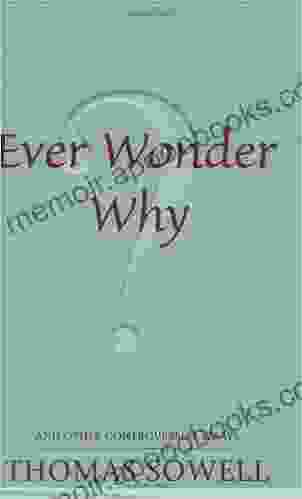
 Jamie Bell
Jamie BellUnlock Your Mind with "Ever Wonder Why And Other...
Prepare to...

 Robert Frost
Robert Frost30 Day Betting Challenge: Transform Your Betting Habits...
Are you tired of...

 Derrick Hughes
Derrick HughesWhat Is Victory In War? Unraveling the Enigma of Triumph
The Illusion...

 Jesse Bell
Jesse BellThe Shooters: A Gripping Presidential Agent Novel That...
Enter the Shadowy World of...
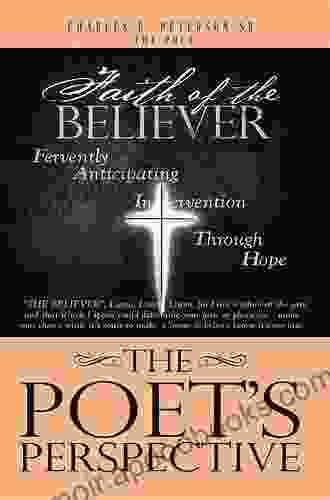
 Ernest Hemingway
Ernest HemingwayUnlocking the Theological Depths of Paul Claudel: An...
Prepare to embark on an...
5 out of 5
| Language | : | English |
| File size | : | 5684 KB |
| Text-to-Speech | : | Enabled |
| Screen Reader | : | Supported |
| Enhanced typesetting | : | Enabled |
| Word Wise | : | Enabled |
| Print length | : | 264 pages |


